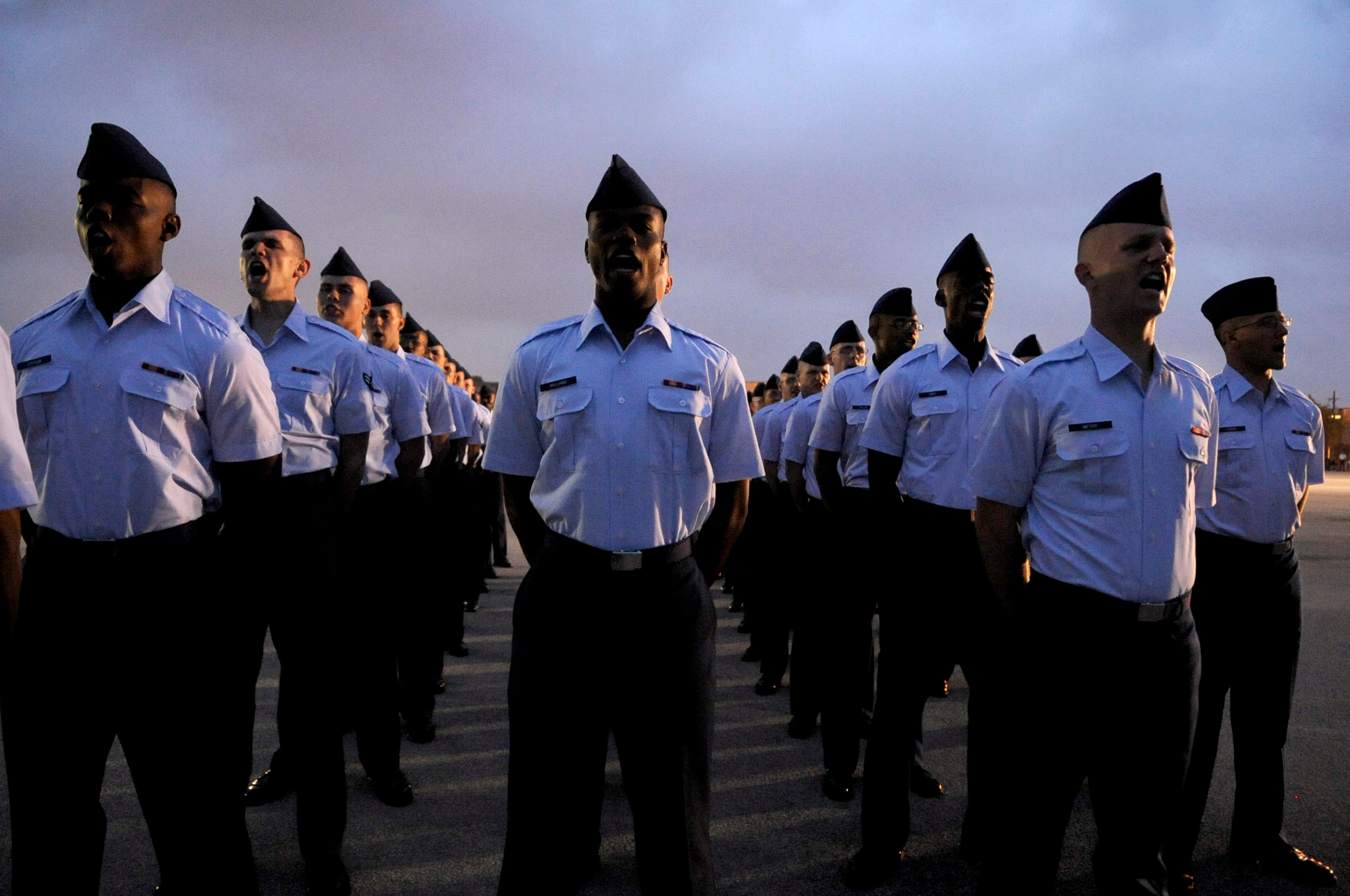The Air Force isn’t ready to implement any stop-loss orders yet, but the COVID-19 pandemic has prompted the service to seek volunteers to remain in uniform beyond their current planned separation dates.
The response to the coronavirus has forced the service to cut down the number of trainees who report for duty at Basic Military Training, raising some concerns about the ability to maintain the manpower needed to execute missions around the world.
But, even though the Pentagon is considering the possibility of “stop-loss” orders to involuntarily keep service members in the military longer than their contracts afford, the commander of the Air Education and Training Command said the Air Force won’t move in that direction quite yet.
“Our assessment is that we don’t have to take other measures, such as stop-loss, which of course is being discussed inside of Washington. We’re not at that point yet," Lt. Gen. Marshall “Brad” Webb told reporters Friday.
However, Webb said that things may change if the COVID-19 pandemic drags on for months, prompting the Pentagon and the Air Force to reassess if additional measures to bolster the force are needed.
For now, the Air Force hopes to boost its numbers by encouraging airmen to voluntarily continue serving beyond their planned separation date.
“We have seen and continue to pursue service members volunteering to stay past their scheduled separation and retirement dates,” Department of the Air Force spokesperson Capt. Carrie Volpe said in an email to Air Force Times. “As we’ve seen in other times of crisis, Airmen rise to the occasion and serve when needed, fulfilling their patriotic duty to serve and support the on-going effort to take care of American citizens and communities.”
The Air Force said it has several tools at its disposal to keep a strong force, including voluntary extensions of current enlistment contracts. Volpe said that the voluntary contract extensions are an option available to airmen regardless of the so-called “up-or-out” limits they might be running up against, and such instances would fall under exceptions to the high-year tenure policies.
Specifically, the Air Force is encouraging medical personnel to remain in uniform to combat COVID-19, and has lifted certain measures to streamline the process for these healthcare professionals.
“We have put out calls to Total Force healthcare professionals to let them know we welcome their voluntary interest in staying longer to serve and support the effort to take care of American citizens,” Volpe said.
"To further assist volunteers, we have removed procedural and administrative barriers to extending for those targeted individuals with the required skill sets to help us fight and win against this ‘invisible enemy.’”
On Wednesday, the Pentagon said it was weighing a range of options as COVID-19 takes a toll on the military. While the Defense Department did not completely rule out a stop-loss policy as an option, officials said it would only come as a last resort.
“Given the impact of the COVID-19 pandemic on the nation as a whole and on the military’s ability to recruit and train new service members, the Department is looking at a wide range of options that will ensure enduring national security mission capability,” Pentagon spokesperson Lisa Lawrence said in a statement.
“While there are many options, stop-loss is one that would only be considered if absolutely necessary and is an alternative that we will work diligently to avoid," Lawrence said. “There have been no formal recommendations for implementing stop-loss at this time.”
The military imposed stop-loss policies during the wars in Iraq and Afghanistan, although the Obama administration moved to scale back the policy starting in 2009.
This year, the military has been forced to adapt its recruitment process in light of COVID-19.
For example, the Air Force has shortened BMT based out of Joint Base San Antonio-Lackland in Texas so recruits can graduate after seven weeks of training rather than eight and a half, an effort to promote social-distancing requirements across the campus.
Likewise, the Air Force also unveiled a plan that took effect on Tuesday to keep the number of trainees who report for duty to about 460 — down from the up to 800 trainees in each class under normal circumstances.
The Pentagon said Friday that 2,031 service members have tested positive for COVID-19, along with 493 civilians, 325 dependents and 205 contractors. A total of 13 Department of Defense personnel have died due to the virus.





